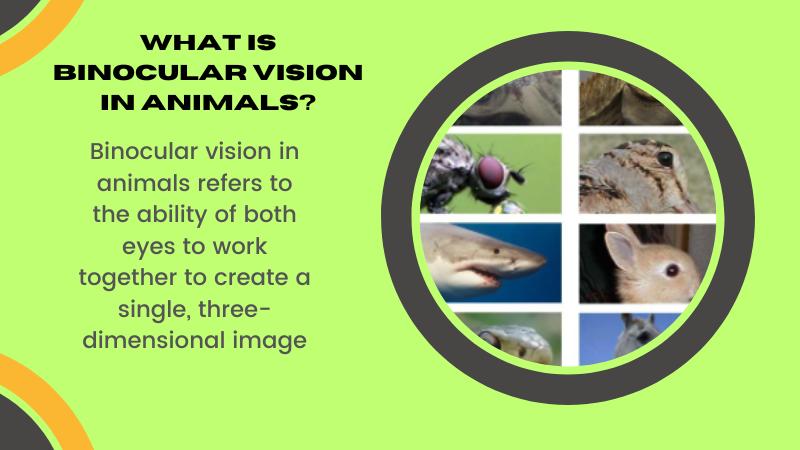Optometrists and ophthalmologists can diagnose binocular vision dysfunction.
Binocular vision dysfunction (BVD) is a condition where the eyes have difficulty working together as a team. Optometrists and ophthalmologists are eye care professionals with the expertise to diagnose and treat various visual conditions, including BVD.
| Eye Care Professionals | Diagnosis of Binocular Vision Dysfunction |
|---|---|
| Optometrists | Yes |
| Ophthalmologists | Yes |
| Opticians | No |
| General Physicians | No |
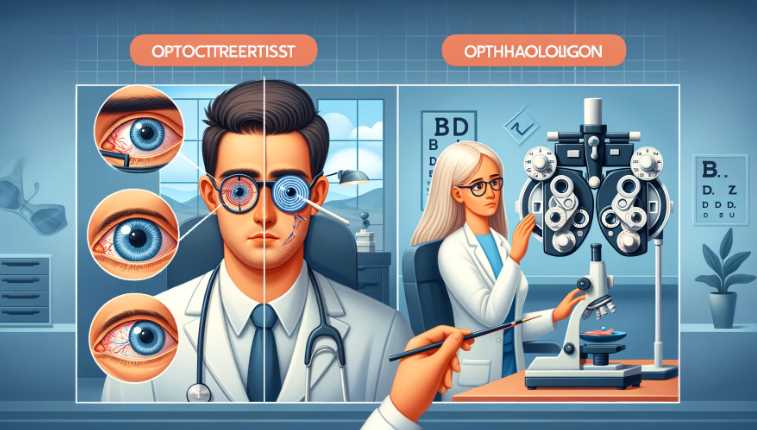
Optometrists and ophthalmologists are trained to conduct comprehensive eye exams that assess not only visual acuity but also the coordination and alignment of the eyes. They use various tests and procedures to identify binocular vision dysfunction and recommend appropriate interventions or treatments. Opticians and general physicians, while important for overall eye health, may not have the specialized training to diagnose BVD.
Understanding Binocular Vision Dysfunction
Binocular vision refers to the ability of the eyes to work together, allowing us to perceive a single, three-dimensional image. This complex process involves the brain’s ability to merge the slightly different images captured by each eye into one cohesive picture. When binocular vision is compromised, it can result in various symptoms, such as double vision, eye strain, difficulty focusing, and problems with depth perception.
Symptoms of Binocular Vision Dysfunction
Binocular vision dysfunction can manifest in a variety of ways, and individuals may experience a combination of the following symptoms:
- Eye Strain: Prolonged periods of reading or screen time may cause discomfort or fatigue in the eyes.
- Headaches: Persistent headaches, especially after visual tasks, can be a sign of binocular vision dysfunction.
- Double Vision: Seeing two images instead of one, either occasionally or consistently, is a common symptom.
- Difficulty Concentrating: Tasks that require sustained visual attention, like reading or writing, may become challenging.
- Depth Perception Issues: Trouble judging distances and spatial relationships can impact activities like sports or driving.
- Motion Sickness: Individuals with BVD may be more prone to motion sickness due to the visual system’s difficulty in processing movement.
Causes of Binocular Vision Dysfunction
Several factors can contribute to the development of binocular vision dysfunction. These include:
- Strabismus: Misalignment of the eyes, where one eye turns inward, outward, upward, or downward, can disrupt binocular vision.
- Refractive Errors: Unequal refractive errors between the eyes, such as variations in nearsightedness, farsightedness, or astigmatism, can lead to BVD.
- Convergence Insufficiency: Difficulty coordinating the eyes when focusing on near objects can cause eye strain and double vision.
- Traumatic Brain Injury: Head injuries or concussions can affect the brain’s ability to process visual information, leading to binocular vision dysfunction.
- Eye Muscle Imbalances: Weakness or imbalance in the muscles that control eye movement can disrupt binocular vision.
Who Can Diagnose Binocular Vision Dysfunction?
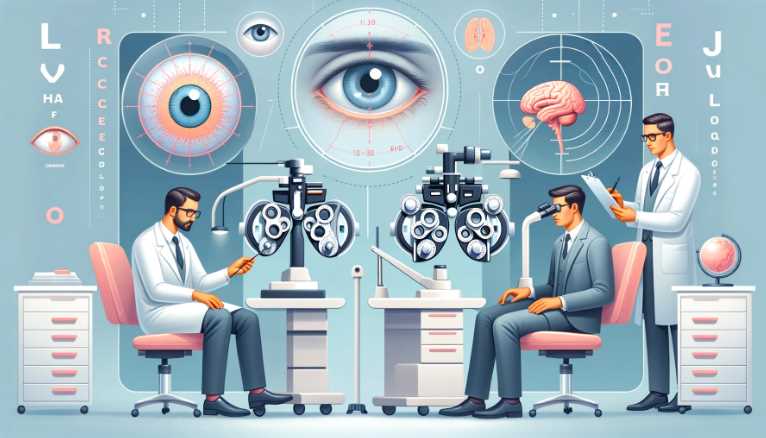
Diagnosing binocular vision dysfunction requires a thorough examination by a qualified eye care professional. Several specialists are trained to diagnose and treat BVD, including:
Optometrists
Optometrists are primary eye care providers who specialize in assessing and correcting vision problems. They play a crucial role in diagnosing binocular vision dysfunction, as they are trained to perform comprehensive eye exams that assess both visual acuity and the functionality of the visual system. Optometrists may use various tests to evaluate eye coordination, depth perception, and the ability to focus on near and distant objects. If binocular vision dysfunction is suspected, they may recommend further evaluation or treatment.
Ophthalmologists
Ophthalmologists are medical doctors who specialize in eye care, including surgery and medical treatments. While they focus on medical and surgical interventions for eye conditions, many ophthalmologists also diagnose and manage binocular vision dysfunction. They may work in conjunction with optometrists to provide a comprehensive approach to eye care. Ophthalmologists may use advanced diagnostic tools and imaging techniques to assess the health of the eyes and identify underlying issues contributing to binocular vision dysfunction.
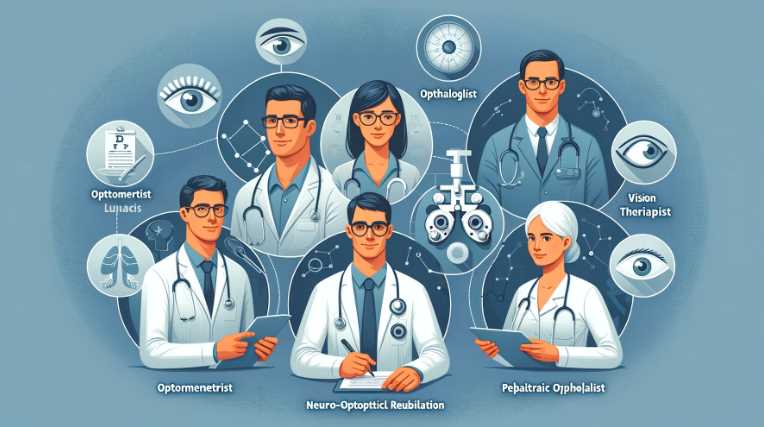
Vision Therapists
Vision therapists are professionals trained in the field of vision therapy, a specialized form of rehabilitative therapy for the eyes. They work with individuals to improve visual skills, including eye tracking, convergence, and focusing abilities. Vision therapists often collaborate with optometrists or ophthalmologists to design personalized treatment plans for patients with binocular vision dysfunction. Vision therapy may involve exercises, activities, and specialized tools to enhance visual coordination and function.
Neuro-Optometric Rehabilitation Specialists
Neuro-optometric rehabilitation specialists focus on the relationship between vision and the brain. They are trained to assess and treat visual problems resulting from neurological conditions, such as traumatic brain injury or stroke. Individuals with binocular vision dysfunction caused by neurological factors may benefit from the expertise of neuro-optometric rehabilitation specialists. These professionals use a multidisciplinary approach to address visual and perceptual issues, working closely with other healthcare providers as needed.
Pediatric Ophthalmologists
Pediatric ophthalmologists specialize in the eye care of children. Since binocular vision dysfunction can often manifest in childhood, pediatric ophthalmologists play a crucial role in early detection and intervention. They are trained to assess and address visual problems unique to children, including amblyopia (lazy eye) and strabismus. Early diagnosis and treatment of binocular vision dysfunction in childhood can significantly impact a child’s visual development and overall well-being.
Importance of Early Detection and Treatment
Early detection of binocular vision dysfunction is essential for preventing long-term complications and improving overall quality of life. If left untreated, BVD can lead to persistent symptoms, academic challenges, and difficulties in daily activities. Children, in particular, may experience developmental delays in reading and learning, affecting their academic progress.
Treatment approaches for binocular vision dysfunction vary depending on the underlying causes and severity of the condition. In many cases, vision therapy exercises designed to improve eye coordination and strengthen eye muscles can be effective. Prescription lenses, prism lenses, and other optical interventions may also be recommended to alleviate symptoms.
What is Binocular Vision Dysfunction (BVD)?
Binocular Vision Dysfunction (BVD) is a condition where the eyes struggle to work together as a team, leading to symptoms like double vision, headaches, and eyestrain. It can affect various aspects of daily life, including reading and driving.
Who Can Diagnose Binocular Vision Dysfunction?
| Professionals | Qualifications |
|---|---|
| Optometrists | Trained in eye health and vision care, optometrists can assess binocular vision through comprehensive eye examinations. |
| Ophthalmologists | Medical doctors specializing in eye care, ophthalmologists can diagnose and treat BVD, often in more severe cases. |
| Neurologists | For cases where BVD is linked to neurological issues, neurologists may be involved in the diagnosis and management. |
| Vision Therapists | Specialized professionals can assess and treat BVD through vision therapy, a non-invasive approach to improve coordination. |
How is Binocular Vision Dysfunction Diagnosed?
| Diagnostic Methods | Description |
|---|---|
| Symptom Assessment | Evaluating symptoms like double vision, headaches, and difficulty concentrating, which may indicate issues with binocular vision. |
| Visual Acuity Testing | Assessing the clarity of vision at different distances to identify any refractive errors or discrepancies between the eyes. |
| Eye Alignment Tests | Checking how well the eyes work together and ensuring proper alignment to detect issues related to binocular vision. |
| Depth Perception Tests | Evaluating the ability to perceive depth, crucial for proper binocular vision and coordination between the eyes. |
Can Binocular Vision Dysfunction be Diagnosed in Children?
Yes, BVD can affect individuals of all ages, including children. In fact, early detection is crucial to address any developmental issues. Pediatric optometrists specialize in assessing and diagnosing binocular vision problems in children. Common signs include squinting, rubbing the eyes, and avoiding visually demanding tasks.
Are there Self-Tests for Binocular Vision Dysfunction?
While there are online tools claiming to assess binocular vision, self-tests may not provide accurate results. Professional evaluation by an optometrist or ophthalmologist is recommended for a thorough assessment. Attempting to self-diagnose may lead to misinterpretation of symptoms and delayed treatment.
Can Binocular Vision Dysfunction be Misdiagnosed?
Misdiagnosis is possible, as symptoms of BVD may overlap with other eye conditions. Seeking evaluations from experienced eye care professionals, such as optometrists or ophthalmologists, can help ensure an accurate diagnosis. A comprehensive eye examination is crucial for identifying and addressing binocular vision issues.
Is Vision Therapy an Effective Treatment for Binocular Vision Dysfunction?
| Treatment Option | Effectiveness |
|---|---|
| Vision Therapy | Proven to be effective in many cases, vision therapy involves exercises to improve eye coordination and alleviate BVD symptoms. |
| Prism Lenses | Prescribed to correct alignment issues and enhance binocular vision by modifying how light enters the eyes. |
| Corrective Lenses | Prescription glasses may be recommended to address refractive errors and optimize visual clarity for both eyes. |
| Eye Muscle Surgery | In severe cases, surgical intervention may be considered to correct eye muscle imbalances affecting binocular vision. |
Can Binocular Vision Dysfunction Cause Headaches?
Yes, headaches are a common symptom of BVD. When the eyes struggle to work together, it can lead to eyestrain and tension headaches. Addressing the underlying binocular vision issues through diagnosis and appropriate treatment, such as vision therapy or corrective lenses, can help alleviate headaches associated with BVD.
How Long Does it Take to Diagnose Binocular Vision Dysfunction?
The time required for a BVD diagnosis varies depending on the complexity of symptoms and the thoroughness of the examination. A comprehensive eye examination by an optometrist or ophthalmologist is typically the first step. Additional tests, such as those evaluating eye alignment and depth perception, may extend the diagnosis process. Prompt consultation with an eye care professional is essential for timely intervention.
Can Binocular Vision Dysfunction be Linked to Learning Disabilities?
There is evidence suggesting a correlation between BVD and learning difficulties, particularly in tasks involving reading and concentration. Children and adults with undiagnosed BVD may experience challenges in academic or work-related activities. Optometrists specializing in developmental vision can assess the potential connection between binocular vision issues and learning disabilities.
Are there Specialized Tests for Binocular Vision Dysfunction?
| Specialized Tests | Purpose |
|---|---|
| Stereopsis Testing | Evaluating depth perception by assessing the ability to perceive three-dimensional images. |
| Convergence Testing | Measuring the eyes’ ability to converge (move toward each other) when focusing on a close object. |
| Accommodation Assessment | Examining the eyes’ ability to focus on objects at different distances, crucial for overall visual coordination. |
Specialized tests complement standard diagnostic procedures, providing a more in-depth understanding of the specific aspects of binocular vision dysfunction. Optometrists may use these tests to tailor treatment plans to individual needs.
Can Binocular Vision Dysfunction Improve with Treatment?
In many cases, BVD symptoms can significantly improve with appropriate treatment. Vision therapy, prescribed lenses, or other interventions aim to enhance eye coordination and alleviate symptoms. Consistent adherence to treatment plans, along with regular follow-up appointments, increases the likelihood of positive outcomes. However, the effectiveness of treatment may vary depending on the severity of the dysfunction.
How Often Should Follow-up Visits Occur After Diagnosing Binocular Vision Dysfunction?
| Follow-up Schedule | Recommendations |
|---|---|
| Initial Follow-up | Shortly after diagnosis, optometrists or ophthalmologists may recommend a follow-up to discuss treatment options. |
| Regular Check-ups | Periodic check-ups are essential to monitor progress and make any necessary adjustments to the treatment plan. |
| As-Needed Visits | If new symptoms arise or existing symptoms worsen, scheduling additional visits is crucial for prompt intervention. |
The frequency of follow-up visits depends on the individual’s response to treatment and the severity of binocular vision dysfunction. Regular monitoring ensures that adjustments can be made to optimize the effectiveness of the chosen treatment approach.
Conclusion
Binocular vision dysfunction is a complex condition that requires careful evaluation by qualified eye care professionals. Optometrists, ophthalmologists, vision therapists, neuro-optometric rehabilitation specialists, and pediatric ophthalmologists all play important roles in diagnosing and treating BVD. Early detection and intervention are crucial for preventing complications and improving the overall visual health and well-being of individuals affected by binocular vision dysfunction. If you or someone you know is experiencing symptoms of BVD, seeking the expertise of an eye care professional is the first step toward understanding and managing this condition.
Resources and References
- American Optometric Association (AOA):
- The AOA is a valuable resource for information on optometry, eye health, and vision-related conditions. Their website provides articles, guidelines, and updates on the latest research in the field.
- American Academy of Ophthalmology (AAO):
- The AAO is a leading organization for ophthalmologists, providing resources on eye health, professional development, and patient education. Their website offers informative materials on various eye conditions, including binocular vision dysfunction.
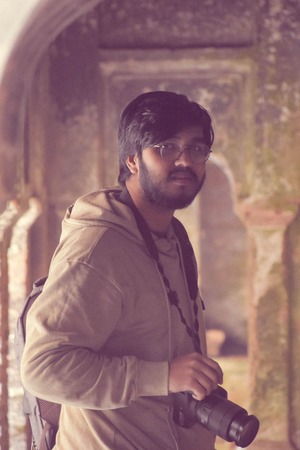
Fahim Foysal is a well-known expert in the field of binoculars, with a passion for exploring the great outdoors and observing nature up close. With years of experience in the field, Fahim has honed his skills as a binocular user and has become a go-to resource for those seeking advice on choosing the right binoculars for their needs.
Fahim’s love for the natural world began during his time at The Millennium Stars School and College and BIAM Laboratory School, where he spent much of his free time exploring the outdoors and observing the wildlife around him. This passion for nature led him to pursue a degree in Fine Arts from the University of Dhaka, where he gained a deep understanding of the importance of observation and attention to detail.
Throughout his career, Fahim has used his expertise in binoculars to help others discover the beauty of the natural world. His extensive knowledge of binocular technology and optics has made him a trusted advisor for amateur and professional wildlife observers alike. Whether you’re looking to spot rare birds or observe animals in their natural habitats, Fahim can help you choose the perfect binoculars for your needs. With his guidance, you’ll be able to explore the outdoors with a newfound appreciation for the beauty of the natural world.
Table of Contents
